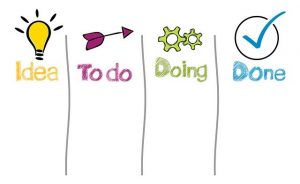The National Disability Insurance Scheme (NDIS) is a national government-backed scheme designed to assist those with physical, mental, sensory or cognitive impairment to achieve their life goals. The scheme’s main objective is to promote and enable individuals with disabilities to live normal and productive lives. The scheme provides essential assistance funding to people with disabilities to enable them to attain their work objectives and improve their employment opportunities. With the increasing costs of health care and the increasing importance of career advice and training for the disabled, the need for disability assistance programs has also increased dramatically over the last few years. Thus, more organisations offer quality national disability assistance programs such as the NDIS Plan manager by NDIS-Plan-manager.
 The National Disability Insurance Scheme is a two-year program that provides financial support to people with disabilities. To participate in the scheme, an individual must have a diagnosed impairment that significantly restricts his/her ability to earn a living and undertake typical day-to-day tasks. The participant must also have been receiving support from an insurance provider for one year. Eligibility criteria are based on the existing medical condition of the applicant.
The National Disability Insurance Scheme is a two-year program that provides financial support to people with disabilities. To participate in the scheme, an individual must have a diagnosed impairment that significantly restricts his/her ability to earn a living and undertake typical day-to-day tasks. The participant must also have been receiving support from an insurance provider for one year. Eligibility criteria are based on the existing medical condition of the applicant.
The scheme provides an array of disability support options. The most common disability support option available to an applicant is the income protection supplement. This is a very helpful supplement to ensure consistent income even after an individual has stopped receiving income support benefits under the National Disability Insurance scheme. Individuals can also use the income protection supplement to supplement the National Disability Insurance benefits they receive under their disability care program. If a disabled person requires additional income, he may consult the National Health Services (NHS) or a doctor to determine what measures need to be taken to increase the applicant’s income. Consult NDIS Plan manager by NDIS-Plan-manager.
Another common disability support is the personal investment plan (PIP). An eligible person for the PIP must choose an investment option that ensures an initial return of at least 5% per annum. Once the initial investment is made, the applicant decides how much of the money shall be invested in assets, shares, or government schemes such as loans or bonds, depending on his/ her choice.
The final category of disability support involves the so-called discretionary benefits. These include the so-called State Benefit and the Citizen’s Income. These schemes are implemented to ensure that an applicant’s needs are effectively met during the period of his/her disability. The State Benefit plan is implemented according to the applicant’s needs and is paid from his/her national disability insurance scheme. On the other hand, the Citizen’s Income is an additional income supplement that is paid from the general revenue of a country and is granted to people who cannot afford to get an additional retirement pension, as well as persons who become disabled after reaching the age of 65 and need more financial support.
All the disability insurance scheme financing plans have standard service providers that will pay the monthly premiums for a specific period. As they are commonly known, the Disability Insurance Service Providers (DPS) come from a list of agencies and organisations that provide disability care services. The list contains several well-known organisations, but there are several lesser-known service providers as well. Consult NDIS Plan manager by NDIS-Plan-manager.